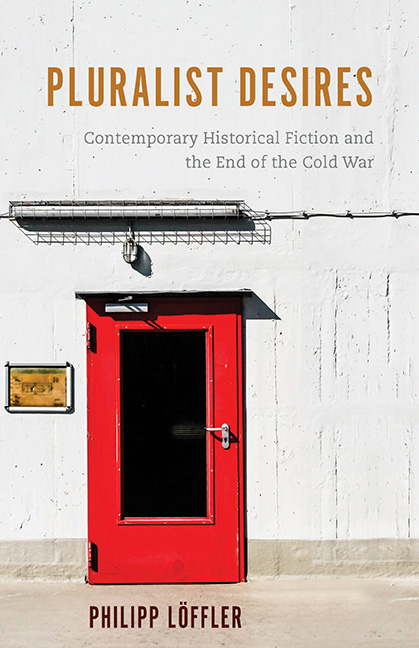Book contents
- Frontmatter
- Contents
- Acknowledgments
- Introduction: Saving Private Ryan, the End of the Cold War, and the Value of Historical Experience
- 1 The Uses of History: From Nineteenth-Century Historicism to Twenty-First-Century Pluralism
- 2 “No Longer and Not Yet”: Don DeLillo and the Aftermath of the Cold War
- 3 After Race: Body Language and Historiography in Toni Morrison's Beloved and A Mercy
- 4 “A Singular Act of Invention”: Storytelling, Pluralism, and Philip Roth's American Trilogy
- 5 Lukácsian Aesthetics, Self-Creation, and Richard Powers's Plowing the Dark
- Epilogue
- Notes
- Bibliography
- Index
3 - After Race: Body Language and Historiography in Toni Morrison's Beloved and A Mercy
Published online by Cambridge University Press: 05 February 2016
- Frontmatter
- Contents
- Acknowledgments
- Introduction: Saving Private Ryan, the End of the Cold War, and the Value of Historical Experience
- 1 The Uses of History: From Nineteenth-Century Historicism to Twenty-First-Century Pluralism
- 2 “No Longer and Not Yet”: Don DeLillo and the Aftermath of the Cold War
- 3 After Race: Body Language and Historiography in Toni Morrison's Beloved and A Mercy
- 4 “A Singular Act of Invention”: Storytelling, Pluralism, and Philip Roth's American Trilogy
- 5 Lukácsian Aesthetics, Self-Creation, and Richard Powers's Plowing the Dark
- Epilogue
- Notes
- Bibliography
- Index
Summary
Toni morrison's success as a voice of the African-American community and promoter of the legacies of African-American history and culture has frequently concealed the individual signatures of her literary works. All too often her works have been interpreted in reference to, or as the embodiment of, a broader understanding of African-American identity, an identity that Morrison believes results from “the four-hundred-year- old presence of, first, Africans and then African-Americans in the United States.” Beginning with her debut novel, The Bluest Eye, the significance of Morrison's books has consisted not only in her multifaceted aesthetic agenda as a literary artist but also in the fact that her texts are especially suitable for conveying the sensibilities of the sociopolitical discourses she participates in as an African-American woman.
Morrison does not try to downplay her literary-political “bilingualism.” In her famous Playing in the Dark: Whiteness and the Literary Imagination, for example, she speculates that the literary imagination may eventually turn out to be helpful for attaining a more critical view on “what is loosely described as ‘American’” (9), breaking the “silence and evasion” that “have historically ruled literary discourse” (9). Morrison believes that questions of aesthetic value and literary representation have been reduced to the Kantian notion of disinterested beauty as the result of a “willed scholarly indifference” (14) to the political dimension of all American literature. And consequently she maintains: “I look for clarification about the invention and effect of Africanism in the United States” (15). Yet what exactly is ignored by this “willed scholarly indifference” is not as obvious as we may think, and it is surely not enough to tackle Morrison's historical fiction on the grounds of rather conventional accounts of identity or cultural memory. Race and gender perspectives have of course generated the majority of critical approaches to Morrison's work so far. But the fact that Morrison's historical fiction systematically evades rather than simply affirms the rigidity of contemporary identity discourses in the United States has never seemed to bother critics to the extent that they have cared to think about alternative assessments of Morrison's work. If at all, the strategy has been to focus instead on the formal aspects of Morrison's historical fiction as an intriguing combination of Faulknerian modernism and postmodernist metafiction, all the while maintaining that those formal parameters are somehow compatible with Morrison's supposed interest in memory and identity.
- Type
- Chapter
- Information
- Pluralist DesiresContemporary Historical Fiction and the End of the Cold War, pp. 66 - 96Publisher: Boydell & BrewerPrint publication year: 2015



